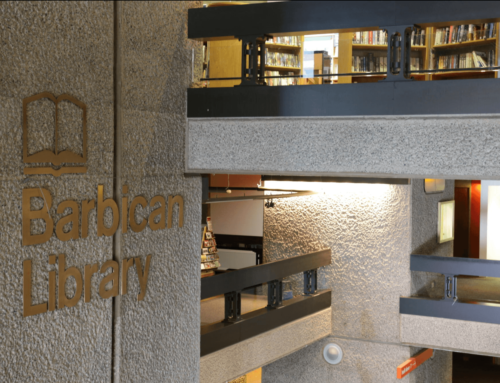
The Statue of Socrates at the Academy of Athens – Photo By Leonidas Drosis
Where does the idea of critical thinking arise from?
The earliest formal records of critical thinking are the teachings of Socrates – who concluded that one cannot depend upon those in “authority” to have sound knowledge and insight. His method of questioning is now known as “Socratic Questioning” and is the best known critical thinking strategy. In essence, critical thinking involves stepping back to look at something objectively and in a critical way.
Why is critical thinking relevant to today in particular?
In an era of “fake news” and “alternative facts” it is more important than ever to be aware of what we view as a source of information and be wary of its authenticity. Fake news is often created to provoke strong reactions including fear or anger. By evoking a person’s emotions you will grab their attention and get them watching or reading your content. This can be done ethically, but often is abused and none more so than when it comes to fake news and biased reporting that pushes a specific agenda.
Fake stories and people spreading them as truth can lead to mistrust and division. An example would be the attempts to sow distrust in the results of the 2020 US election, which has in fact been described as “the most secure [election] in American history” by members of the Election Infrastructure Government Coordinating Council (GCC) including Cybersecurity and Infrastructure Security Agency.
Another worrying behaviour that goes against critical thinking is known as Selective Exposure
 If a person has two contradicting beliefs this can create tension and even anxiety in their mind. This feeling is known as cognitive dissonance where they experience dissent in their thoughts about two opposing beliefs. This is a very common feeling that humans experience and can be handled in a mindful and ethical way. For example, if you are eating unhealthy food and you feel guilty about it the best approach is to question your habits and take action if necessary, which in this case would be changing your eating habits to align your beliefs (not easy, but a common example).
If a person has two contradicting beliefs this can create tension and even anxiety in their mind. This feeling is known as cognitive dissonance where they experience dissent in their thoughts about two opposing beliefs. This is a very common feeling that humans experience and can be handled in a mindful and ethical way. For example, if you are eating unhealthy food and you feel guilty about it the best approach is to question your habits and take action if necessary, which in this case would be changing your eating habits to align your beliefs (not easy, but a common example).
Selective exposure is a process whereby a belief or beliefs that are held by an individual are maintained by not questioning them and only listening to news and sources that reaffirm these beliefs. An extreme example of this would be that of a cult member – who is completely brainwashed into a set of beliefs that they will not question. Any feeling of cognitive dissonance is quickly dismissed and ignored.
What is critical thinking?
According to the University of Edinburgh, being critical “means assessing evidence from a variety of sources and making reasoned conclusions. As a result of your analysis, you may decide that a particular piece of evidence is not robust, or that you disagree with the conclusion, but you should be able to state why you have come to this view and incorporate this into a bigger picture of the literature. Being critical goes beyond describing what you have heard in lectures or what you have read. It involves synthesising, analysing and evaluating what you have learned to develop your own argument or position.”
Why should we think critically?
 According to The Foundation for Critical Thinking, “Everyone thinks; it is our nature to do so. But much of our thinking, left to itself, is biased, distorted, partial, uninformed or down-right prejudiced. Yet the quality of our life and that of what we produce, make, or build depends precisely on the quality of our thought.”
According to The Foundation for Critical Thinking, “Everyone thinks; it is our nature to do so. But much of our thinking, left to itself, is biased, distorted, partial, uninformed or down-right prejudiced. Yet the quality of our life and that of what we produce, make, or build depends precisely on the quality of our thought.”
Critical thinking is relevant in many circumstances. Examples could be evaluating news stories that are on social media, when doing research, or while studying for a degree at university.
Critical thinking can help you to make difficult decisions by allowing you to compare your available options and also find options that you might not otherwise have thought of. When you evaluate information critically, you give others who may try to manipulate you less of a chance of doing so, for example companies that are trying to sell you something, or people who are trying to take advantage of you. If you allow others to think for you and take things at face value who may end up suffering for it. Being able to think critically can also make you more employable, because critical thinking is the key to solving difficult problems. The best employees can not only work out how to solve existing problems, they can also come up with solutions to problems that no one even thought of.
How can you develop your critical thinking skills?
- Ask basic questions. What do you already know?
- Question basic assumptions
- Be aware of your own biases and assumptions
- Turn the possible solution on its head and ask what if the opposite is in fact true
- Evaluate the existing evidence (who gathered it, where did it come from)
- Don’t forget to think for yourself. This does not mean being overconfident necessarily, just do not forget to have your own thoughts
- Understand that no one thinks critically all the time (Michael Scriven and Richard Paul)
The importance of critical thinking in writing
The best writers are those that think critically. Critical thinking enables clear thought processing, which is important for research purposes as mentioned earlier in this piece. It is also an important skill to have in order to write a story that reads well, and that avoids plot holes and inconsistencies. For factual writing, it means questioning old answers and possibly finding new solutions. Critical thinking when writing should also enable you to select the most appropriate and concise words which give the most impact.
Reading further about critical thinking
Critical thinking can have an impact on many of our activities in our daily lives. There are many websites which summarise the subject, and a number of universities discuss this skill on their websites. The Writers’ Initiative section on critical thinking includes a particularly pertinent article, given the current global situation, on conspiracy theories by Ellie Taylor.




Leave A Comment